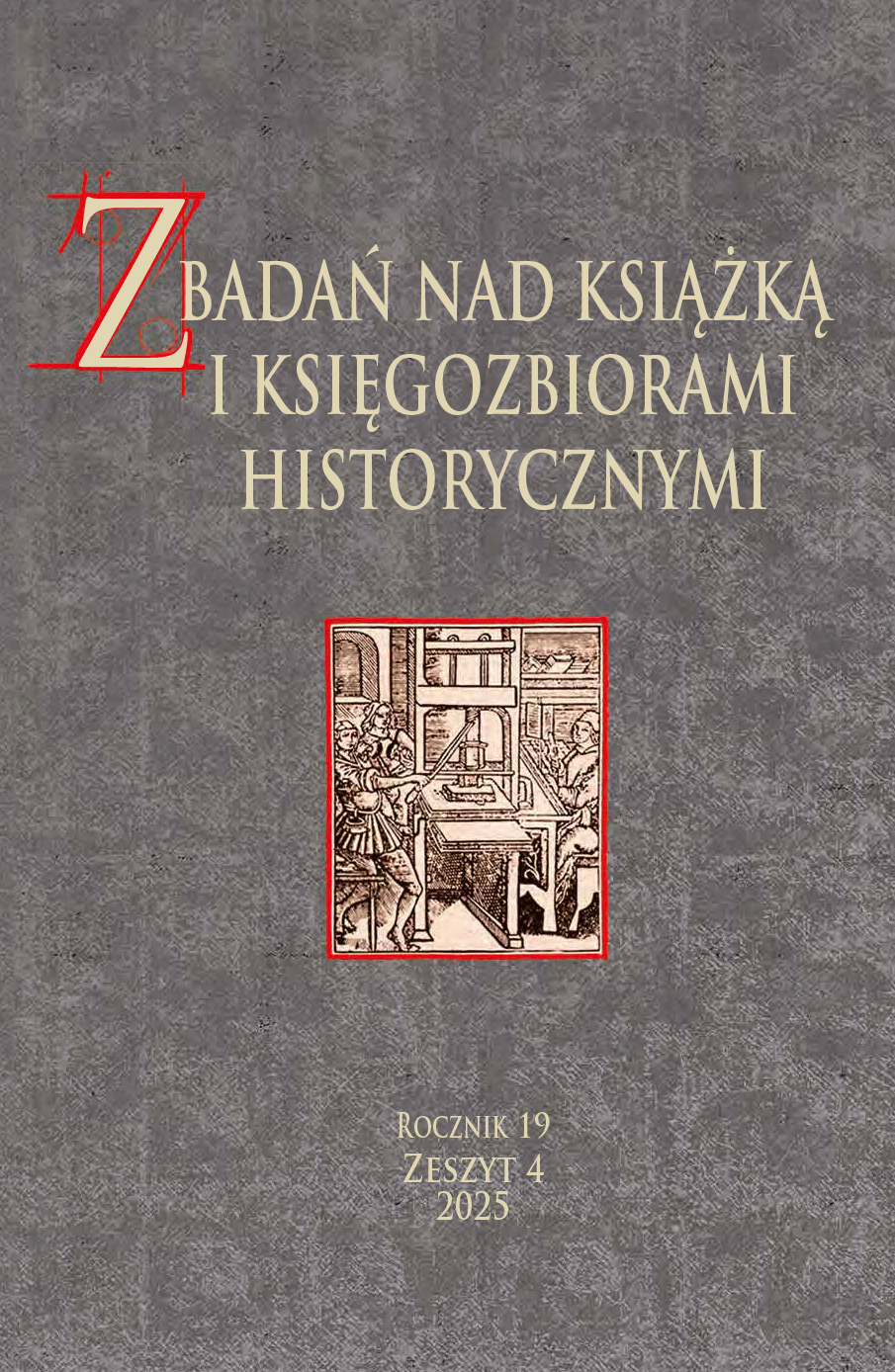The Zbyszewski and the Iżycki Families’ Book Collection in the Tarnów Public Library Collection
DOI:
https://doi.org/10.33077/uw.25448730.zbkh.2016.118Keywords:
provenance research, private libraries in the 19th and 20th c., J. Słowacki Municipal Public Library in TarnówAbstract
In the 18th and 19th centuries there were numerous landed gentry families living in the Lubelskie and Mazovia regions whose members were inscribed in the history of these regions. The families of Zbyszewski (Topór coat of arms) and the Iżycki (Bończa coat of arms) who lived in Markuszowa, Kurowo and Zatory were two remarkable examples of such families. It is worth to mention several important representatives of both families: Paulina Zbyszewska (1822-1892), a social activist and a friend of Narcyza Żmichowska; three magistrates: Grzegorz Zbyszewski (1789-1856), Józef Iżycki (1787-1865) and his son Józef (1822-1893); Leonia Iżycka née Dachowska (1862-1929), a social activist and frequent visitor of the Warsaw salons. Part of the Zbyszewski and Iżycki families’ book collection was held in the Konopkowie manor house in Oleśno in the Dąbrowski district of the Tarnów region because of the family ties with the Konopkowie family. The Konopkowie family gathered an impressive book collection in their manor house, and part of their collection was the Zbyszewski and the Iżycki families’ collection. These books have been held in the Public Library in Tarnów since 1945 (and the time of the agricultural reform in Poland). The collection consists mainly of literary works written in. However, there are also numerous books which were published in series and in multivolume editions. These books have different types of covers: Polish and foreign ones. There are numerous bookplates in these books: ex libris with collection numbers, stamps, seals, personal signatures and dedications. Morover in the preserved Zbyszewski and Iżycki families’ collection, might be found unique and very rare editions, which are rarely represented in other institutions in Poland. Due to above this collection is regarded as the one of major importance, not only in the context of the history of the Tarnów region, but also nationally – it is part of the precious national heritage.






